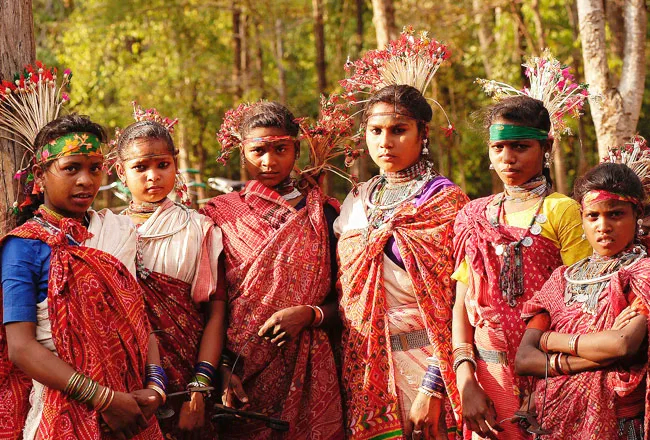The Halba tribe is a significant tribal community in India, with a prominent presence in Maharashtra, Madhya Pradesh, Chhattisgarh, and Odisha. Renowned for their rich cultural heritage and progressive societal structure, the Halba tribe has garnered attention nationwide. Recognized as one of the Scheduled Tribes in the Indian Constitution, the Halbas have successfully maintained their unique traditions while adapting to modern influences.
Demographic Evolution
The population of the Halba tribe has seen a remarkable increase over the decades. In Maharashtra and Madhya Pradesh, their numbers rose from 7,205 in 1971 to 242,819 in 1981, indicating a 35-fold growth within a decade. This demographic shift reflects the tribe’s adaptability and resilience.
Etymology and Economic Activities
The name “Halba” is derived from the word “Hal,” meaning plough, signifying their primary occupation in agriculture. While traditional farming remains a vital part of their livelihood, many Halbas have diversified into various other professions, including land ownership, making them one of the more affluent and progressive tribal communities in India. Their high local caste status sets them apart from other tribes, though they maintain good relations with neighboring communities like the Gonds.
Language and Cultural Identity
The Halba language is a fascinating blend of Marathi, Chhattisgarhi, and Oriya, reflecting the tribe’s geographical spread and cultural amalgamation. Their unique dialect and linguistic richness are integral to their identity, facilitating communication and preserving their heritage.
Social Structure and Customs
The societal structure of the Halba tribe mirrors the customs of many Indian tribes, placing significant emphasis on marriage. Unique marital rules include the prohibition of divorce initiated by women and the stipulation that widowers can only remarry widows. Cousin marriages are also permissible, highlighting their distinct matrimonial traditions.
Culinary Delights and Dietary Habits
Halba cuisine features a variety of mouth-watering dishes, with a notable fondness for wine and mutton. However, members of the Kabirpanthi sect abstain from alcohol. Their diet and culinary practices offer a glimpse into their lifestyle and cultural preferences.
Occupational Diversity
While agriculture remains a cornerstone, Halbas have ventured into poultry farming, animal husbandry, and trading minor forest products such as fruits, leaves, firewood, bamboo shoots, and handmade items. Some Halbas have also showcased their skills in wood carving, creating exquisite designs for both functional and decorative purposes.
Religious Beliefs and Deities
The Halbas revere numerous deities, including Danteshwari, Mawli Mata, Bhima Dev, Bhairam Dev, Ghat Dev, Aanga Dev, and Seethla Devi. Their religious practices also involve a deep respect for nature and its elements, reflecting a harmonious relationship with their environment.
Festivals and Celebrations
Fairs and festivals are integral to Halba culture, adding vibrancy to their traditions. As many Halbas follow Hinduism, they celebrate Hindu festivals such as Diwali, Holi, Dashehra, Goncha (Rath Utsav), and Fagun with great enthusiasm, showcasing their cultural richness and community spirit.
Traditional Attire and Ornamentation
Halba attire is marked by its cultural exuberance. Women adorn themselves with distinctive jewelry, including ‘Khosa’ (a beautiful lock of braid), ‘Khinwa’ (ear tops), ‘Phuli’ (a hanging nose ring), heavy necklaces like ‘Chapsari,’ and garlands made from coins and black pearls. Bangles crafted from gold, silver, brass, aluminum, clay, lead, and wood are also popular. Tattooing, a prevalent practice, further embellishes their cultural identity.
Summing Up
The Halba tribe stands as a testament to the rich cultural tapestry of India’s tribal communities. Their ability to preserve their heritage while embracing modernity highlights their resilience and adaptability. As they continue to thrive across various states, the Halbas exemplify the dynamic interplay between tradition and progress in the tapestry of Indian society.


